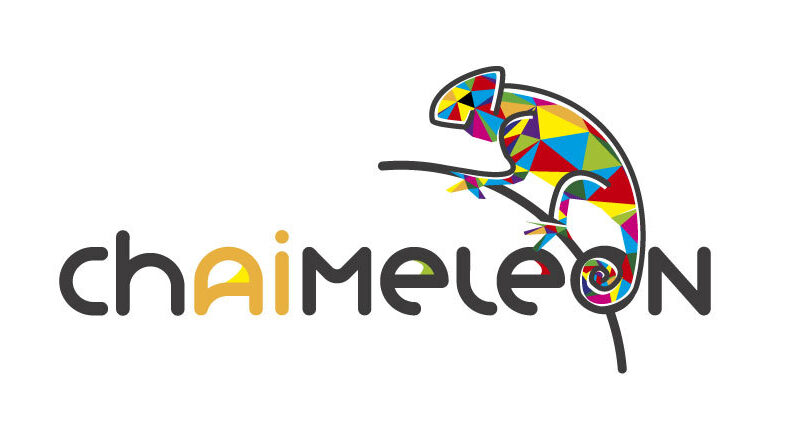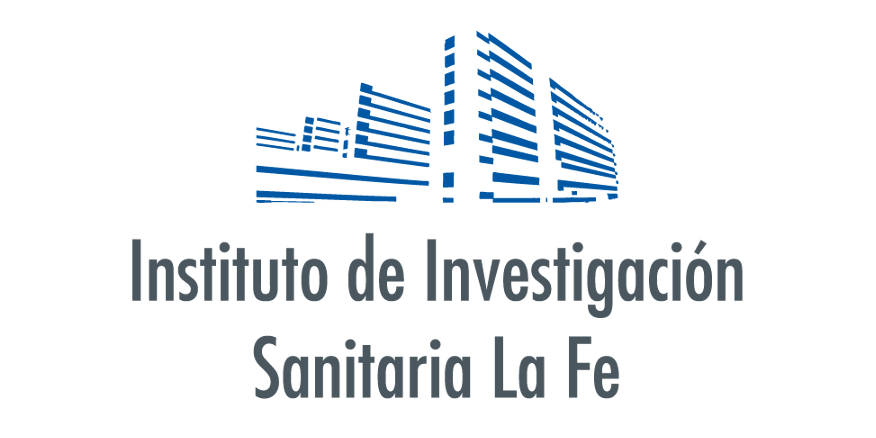Fundacion para la Investigacion del Hospital Universitario la Fe de la Comunidad Valenciana (HULAFE)
La Fe University Hospital, integrated within Spain´s national health system, is one of the largest teaching trusts in Spain, offers scientific and technological services and has more than 10,000 m2 of clinical and research laboratories to undertake research programmes based on state-of-the-art biomedical science, which aim to promote five priority research areas:
- Organ Transplants, Artificial Tissues and Implants.
- Cancer.
- Genetics, Genomics and Translational Research underlying disease mechanisms.
- Experimental-Clinical Research in Neurology.
- Clinical, Epidemiological and Pharmacological Research.
- Technological Research in Biomedicine and Health.
La Fe University Hospital will participate in this project through the “Fundación para la Investigación” at HULAFE, a non-profit organization that carries out the scientific and research policy of the “La Fe” Health Department. The research of excellence carried out at the HULAFE is patient-oriented and was accredited as a “Health Research Institute” by the Spanish Ministry of Science and Innovation in 2009.
Role in the project
The following departments will provide CHAIMELEON with their experience and expertise:
The Medical Imaging Department at La Fe Hospital, led by Dr. Luis Martí Bonmatí, will be in charge for the coordination of this project. The Medical Imaging Area at HULAFE is currently a clinical and research Centre of excellence, performing around 1500 imaging examinations per day, including participation in more than 305 clinical trials. With more than 350 professionals, the unit incorporates the specialties of Radiology, Nuclear Medicine and Medical Physics. This organization has his own research group, the Biomedical Imaging Research Group (GIBI230) that is led by Dr. Luis Marti-Bonmatí, belongs to the Network of Biomedical Research in Bioengineering, Biomaterials and Nanomedicine (CIBER-BBN) and recently has been recognized as a node of the RedIB (Distributed Biomedical Imaging Network) within the National Scientific and Technical Singular Infrastructures (ICTS) of the Spanish government. The group is also certified by Carlos III Research Institute.
The Radiotherapy Department is a well-established reference centre in the area and also in Spain for both paediatric and adult patients. The equipment is based in the last generation of modern lilacs including all the state-of-the-art techniques (SRS, SBRT, VMAT, IGRT, TBI, treatment with respiratory gating and treatment with breath hold, robotic table 6D). The registration of all images modalities (MRI, CT, PET-CT) are done. IGRT using kV-kV or CBCT is performed daily. The activity of Brachytherapy is very extensive (HDR cervix based in MRI, intraoperative LDR and HDR prostate based TRUS, ophthalmic brachytherapy). The treated patients are around 200 per year. The department participates in different trials and projects. In this department the Medical Physics section is included. This section has a close collaboration with the Valencia University producing significant publications along the two last decades.
The Urology Department is a reference centre in complex pathologies for Valencia Area and the rest of Spain. Headed since 2011 by Dr Francisco Boronat Tormo, with 20 professionals belonging to different units and specialized in different areas, including experts in kidney transplant. The Department’s aim is to integrate care, teaching and research. Over recent years, we have incorporated the most modern, least invasive surgical techniques. Over the last fifteen years, we have put significant efforts into translational research in order to apply knowledge gained from basic research to the prevention and treatment of clinical cases, within the framework of the VHIR). At the Urology Department, we are committed to training graduates and postgraduates from the Faculty of Medicine of the University of Valencia, as well as training medical residents to be specialists in our field. Since 1973, we have trained more than sixty specialists, distributed throughout Spain.
The Oncology Department is a reference centre in the Valencia area and the rest of the country. The Department attend patients diagnosed within Valencia area, however, this is a reference centre for complex tumours (brain tumours, soft tissue tumours, for example) all over the country. It has a large history in participation in clinical trials. The Department is distributed into sections related to histology: section A: four medical oncologists attending brain tumours, genitourinary tumours, lung tumours, head and neck tumours and lymphoma. Section B: four medical oncologists attending digestive tumours, soft tissue tumours, genetic counselling). Section C: three medical oncologists attending breast tumours and gynaecological tumours. All of these physicians are national and international references in their specialities. All of them attend weekly tumour committees. Dr José Gómez Codina is Head of the Department since September 2019. The service has two fellowships per year. At the Service, graduates and postgraduates from the Faculty of Medicine of the University of Valencia come to train. There is also one specialist to train colleagues within the hospital and from other hospitals, communities and even at other countries.
The Pathological Anatomy Department constitutes a reference as a central medical service in Valencia, headed by Dr. Francisco José Vera Sempere; with a reference laboratory well known all over Spain. Up to 14 pathologists develop a continuous and hard work in different areas of specialty. In this regard, there are great deals of research publications in different areas of interest. One of the major goals in the department is the integration of clinical care, research and teaching. At the Pathology Department at our hospital we receive students from the Faculty of Medicine (University of Valencia), as well as students from the Polytechnic University of Valencia. In addition, we train medical resident in our field since 1973.
Within the CHAIMELON, HULAFE leads WP9 In-silico External Validation of AI Solutions for Cancer Management. As the project coordinator , HULAFE additionally leads the WPs on project management (WP12) and ethics requirements (WP1).
Universitat Politecnica de Valencia (UPV)
The Institute of Instrumentation for Molecular Imaging (i3M), joint centre of the Spanish National Research Council (CSIC) and the Universitat Politècnica de València, has a very strong background in distributed, cloud computing and data management, especially in the area of biomedicine. I3M has shared and extended its expertise through active participation in over 40 national and European R&D projects on high performance computing (HPC), grid and cloud technologies. These projects include HPCN-TTN Network, EUTIST-M and TT@MED – technology dissemination; EGEE-I, II, III, EGI- InSPIRE, EGI-ENGAGE, VENUS-C, EOSC-hub, EOSC-SYNERGY – e-infrastructures. I3M has a solid research line in the distributed storage of medical imaging data through the TRENCADIS platform (CVIMO project), with international connections in Portugal.
Recent achievements in the area of clouds are the H2020 projects ATMOSPHERE and EUBRazil-BIGSEA and the FP7 EUBrazil Cloud Connect project (the three of them coordinated by the UPV). The group is also the coordinator of the IDIFEDER/2018/032 infrastructure Project, which has enabled the I3M to set up a computing intensive node for medical data processing.
Finally, the group has also led the development of high-level middleware components for cloud infrastructures in the Spanish Codecloud project, CLUVIEM and BIGCLOE national projects.
Role in the project
UPV provides access and management of cloud e-Infrastructures and high-level services for the management and processing of Medical Images, adaptation of applications for data analytics in the context of medical data, as well as management of medical data in secure context and privacy preservation.
According to their expertise, UPV leads WP3 Set-up of CHAIMELEON Reposiotry and contributes to the repository design (WP2).
Quibim Sociedad Limitada (QUIBIM)

QUIBIM is an innovative company specially dedicated to medical image processing and extraction of imaging biomarkers for the medical imaging workflows. QUIBIM stands for Quantitative Imaging Biomarkers In Medicine, and the company is made up of a team of professionals such us biomedical engineers and medical doctors with wide experience and recognized scientific career in the field of medical imaging. QUIBIM applies advanced AI models to radiological images (Magnetic Resonance, Positron Emission Tomography, Computed Tomography, and X-ray) to objectively measure changes produced by a pharmacological treatment or by a lesion in human and animal tissues. QUBIM offers a comprehensive service for the extraction of quantitative information of radiological images with the aim of improving the process of high-incidence illness diagnosis and to properly assess the changes produced by pharmacological treatments on the human body.
QUIBIM was selected among the best European SMEs thanks to the Phase 1 and Phase II SME Instrument. Currently is one of the worldwide leading companies in AI applied to medical imaging. QUIBIM’s CEO, Angel Alberich, is one of the most recognized researchers and biotech entrepreneurs in Europe, awarded in 2015 by the Massachusetts Institute of Technology (MIT) under the program MIT Innovators Under 35 that annually awards to young innovators, pioneers and changemakers worldwide.
Role in the project
QUIBIM is an international core reference laboratory of medical image processing whose customers are innovative doctors, researchers in precision medicine and CROs, mainly located in USA, Europe and Asia. As of today QUIBIM has processed more than 5.4 million imaging studies and has an instalment base of 68 hospitals and 11 clinical trials, with partnership collaborations with equipment manufacturers. QUIBIM’s expertise can be summarized in the following key points:
- Optimization of image acquisition protocols in Medical Imaging equipment (MR, CT, FDG-PET, PiB-PET, US) and cross-calibration in multi-centre studies.
- Quality check and studies validation in multi-center trials
- Imaging biomarkers extraction through post-processing pipelines
- Generation of AI models to accelerate and harmonize imaging biomarkers quantification as radiomics features
- Statistical analysis of both data and images for the interpretation of results.
QUIBIM will contribute its expterise throughout the CHAIMELEON project, in particular in implementing a user-friendly interface for the infrastructure and developing and assessing harmonisation approaches . IN addition, they will organise the CHAIMELEON Open Challenges to the AI Community for cancer management
Bahia Software Sl (BAHIA)
BAHIA SOFTWARE is a technology company founded in 1999 and specialized in the health sector. The catalogue of services and products offered by BAHIA SOFTWARE covers the whole life cycle of software development, and it includes consulting services in specific technologies. Currently, the experience and activity of BAHIA SOFTWARE focuses mainly on the following services:
- Consulting and technological planning
- Design and development of corporate information systems
- Interoperability and systems integration
- Support centers
- Identification and traceability
- Business Intelligence
BAHIA SOFTWARE is recognized as a national reference entity in medical imaging in Spain. The company manages approximately 8% of all medical images generated in Spain. This implies the management of more than 4.5 million studies per year. This technological challenge demands a high knowledge of interoperability, the adoption of international standards and a deep understanding of health systems and ehealth technologies. In order to fulfil future demands of health systems, the company has started to carry out R&D projects related with advance microscopy techniques, digitalization of samples from biobanks as well as the integration of Genomic data into Electronic Health record Systems.
Role in project
Some of the challenges that BAHIA SOFTAWARE usually faces at hospitals (different standards, research and clinical data integration, storage capacity optimization, etc) will be also faced in the CHAIMELEON project and lately in the Human Cell Atlas project. As part of the CHAIMELEON consortium, BAHIA SOFTWRE will share its knowledge and experience about the use of opensource solutions for the management of complex data (imaging, genomics, transcriptomics, etc) within the CHAIMELEON research community. Some of the challenges everyday raised by clinicians are also among the top priorities of CHAIMELEON, such as
- the creation of a cloud platform that integrates information from different sources (genomic data, images, metadata);
- the promotion of international standards regarding interoperability and connectivity
- the optimization of data storage
- the high robustness and maximum levels of cybersecurity
- the combination of data obtained from different sources
- the definition of corporate software solutions that can grow in line with the internal evolution of the organization, facilitating the incorporation of new functionalities and algorithms.
BAHIA SOFTWRE will significantly contribute to all these demands maximizing the knowledge and experience gained along the years and developing new tools based on R&D activities in close collaboration with CHAIMELEON researchers.
Matical Innovation SL (MATICAL)
MATICAL is a consultancy firm specialized in R&D projects management and exploitation. MATICAL offers comprehensive support services for the planning, initiation, and implementation of international collaborative research and innovation projects with competencies in project, communication and innovation management. Its multifaceted service portfolio includes all aspects of project management: from strategic project planning, to successful project implementation, IPR management and exploitation of research results.
Matical’s team is formed by senior project managers and consultants. They have been involved in the coordination and management of more than 20 EU projects (Eurostars, CIP.-PSP, FP7, H2020…), plus 59 private/non-publicly funded R&D projects for different enterprises and public bodies.
Role in project
MATICAL provides CHAMALEON with key competences in the areas of project management, innovation management and exploitation planning:
Project management:
- Central monitoring of all project activities, deliverables and deadlines quality, knowledge and risk management; Development and implementation of standards and processes; Preparation of reports and collection of data about project progress.
- In addition to classic project management, MAT offers strategic and operational support to maximise the value of project results through our extended network of internal and external Intellectual Property (IP) and innovation experts – fully in line with the priorities of Horizon 2020 to place more emphasis on systematic exploitation strategies and activities.
Innovation Management:
- To define exploitation plans on individual and consortium level.
- To identify potential opportunities, conflicts, barriers and bottlenecks.
- To support the analysis of key exploitable results including value propositions.
- Technology watch and market studies: Market & Technology State of the Art analysis: Surveillance of the state of the art of key technological areas. Market studies of potential innovative products. R&D strategy and financing sources.
Exploitation & commercialization planning:
- Strategic consultancy and hands-on support on intellectual property management in collaborative projects.
- Support for drafts and updates of exploitation strategies, action plans and contract management on consortium and partner level
- Planning, preparation and implementation of exploitation workshops to identify and assess key exploitable results.
- Unbiased support for all project partners in order to reach mutually agreed settlements for the successful exploitation of collaborative project outcomes.
Universitat de Valencia (UV)
IRTIC (University Research Institute on Robotics and Information and Communication Technologies) is a research centre of the University of Valencia and currently consists of three research groups, which cover different disciplines connected with the field of information and communication technologies. LISITT (Integrated Laboratory of Intelligent Systems and Traffic Information Technologies) is the group involved in the project. A multidisciplinary group that brings together over 50 professionals, all of them graduates, among civil servants, hired staff and their own research staff in a phase of continuous growth and expansion.
LISITT has a consolidated background in the participation and coordination of European projects. It has participated since 1992 in the different EU research programs, mainly related to Intelligent Transport Systems and Advanced Information Management Systems.
The lines of work covered by LISITT since its establishment and that are part of its technological capacity are the following:
- Applications for the dissemination of information through the internet and wireless networks.
- Applications for the exchange of information between systems and dynamic navigation.
- Applications of databases, business intelligence, big data and systems architecture.
- In recent years, LISITT has incorporated a research line of privacy, security and protection of personal data into its main working areas.
Role in project
The expertise offered by LISITT is provided by the privacy, security and protection of personal data group. The topics covered by this research group are:
- Adaptation to the General Data Protection Regulation (RGPD) Organic Law on the Protection of Personal Data and the Guarantee of Digital Rights (LOPDGDD)
- Situation analysis in relation to the RGPD and LOPDGDD and proposal of actions.
- Assistance in creating the Treatment Activities Registry in relation to the RGPD and LOPDGDD.
- Analysis and evaluation of compliance with the National Safety Scheme (ENS) in relation to the RGPD and LOPDGDD.
- Specific evaluation for sensitive medical data in relation to the RGPD and LOPD, including risk analysis and impact evaluation.
- Audit, intrusion testing and forensic analysis in computer applications.
The group has outstanding experience in assessing compliance with regulations and guidelines on privacy and security for large entities dedicated to the field of research, including medical research, such as universities and hospitals. Moreover, they are experts in the evaluation of the privacy and data protection rules in medical researches. They have participated as consultants and reviewers of the ethical and privacy regulations in European projects and worked with other institutions as the Diputación de Valencia (Local Public Administration), ADEIT (university fundation) or Microsoft Company.
In CHAIMELEON, UV leads WP2 Legal and Ethical Aspects and ensures compliance with relevant national legistraiton and ehtics principles for both data donors and data users. As an expert in personal data protection, Prof. Ricard Martínez Martínez serves as the project’s Data Protection Officer.







